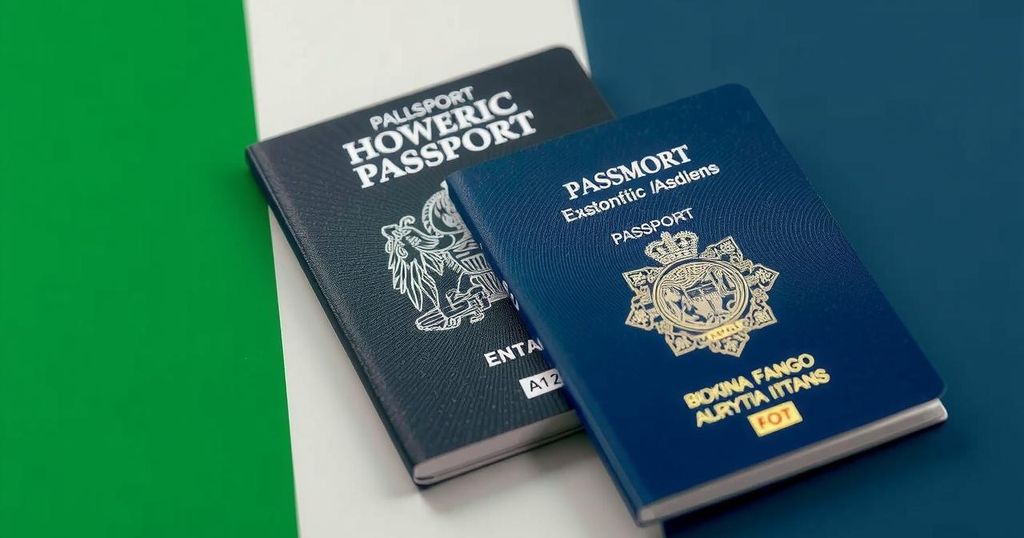Military Juntas in West Africa to Introduce Biometric Passports Amid Political Withdrawal from Ecowas
Mali, Burkina Faso, and Niger, countries governed by military juntas, will soon launch biometric passports as part of their departure from Ecowas. The decision underscores a commitment to their newly formed Alliance of Sahel States, amidst ongoing tensions and security challenges in the region.
Three West African nations governed by military juntas—Mali, Burkina Faso, and Niger—are set to introduce new biometric passports “in the coming days” as a part of their strategy to distance themselves from the Economic Community of West African States (Ecowas). These countries, which experienced a series of military coups between 2020 and 2023, had announced their intention to leave the regional bloc in January. In response to the coups, Ecowas imposed sanctions in an effort to restore civilian governance, but the military regimes have largely resisted these pressures, choosing instead to solidify their alliance known as the Alliance of Sahel States. During a recent televised address, Malian junta leader, Colonel Assimi Goïta, stated, “In the coming days, a new biometric passport of the [alliance] will be put into circulation with the aim of harmonising travel documents in our common area.” This announcement comes as the military governments prepare to commemorate the first anniversary of their confederation. Colonel Goïta also indicated plans for a collaborative initiative to enhance information sharing amongst the three states. Notably, Burkina Faso has previously disclosed intentions to issue a biometric passport excluding the Ecowas insignia. The implications of the new passports on the travel rights of their citizens, particularly concerning previous visa-free access to other Ecowas nations, remain uncertain. In July, the junta leaders expressed a definitive renouncement of Ecowas, asserting their desire to cultivate a community rooted in African values and autonomy from international influences. This latest development occurs amid ongoing Ecowas attempts to navigate the political reintegration of these Sahel nations. Ecowas has warned that formalizing this breakaway alliance could lead to regional fragmentation and exacerbate security challenges. The Sahel region continues to grapple with longstanding jihadist violence, which has claimed thousands of lives and displaced millions. One justification the military leaders provided for their coups was the necessity to combat such insurgency, although progress in this area has been limited. The countries have also expelled French military forces previously supporting the area’s fight against terrorism, subsequently seeking military aid from Russia. The establishment of a new passport system underscores the deeper geopolitical shifts occurring in West Africa and the interplay between military governance and regional security protocols.
The context of this initiative arises from a period of instability in West Africa, marked by military coups that have upended civilian leadership in Mali, Burkina Faso, and Niger. Following these coups, Ecowas imposed sanctions in an effort to restore democratic governance, but the military regimes have formed their own alliance, resisting external interventions intended to encourage a return to civilian rule. The introduction of biometric passports is seen as a move to assert autonomy from Ecowas and facilitate a new framework for regional cooperation among the allies, while also posing risks to existing travel arrangements and regional stability.
In summary, the impending issuance of new biometric passports by Mali, Burkina Faso, and Niger signifies a significant shift in regional dynamics and a deliberate move away from Ecowas. As these military-led nations seek to strengthen their alliance and redefine their sovereign identities, the wider implications for regional security, travel, and international relations become increasingly complex. The lack of clarity regarding travel restrictions and the continuation of jihadist threats highlight the precarious balance in the Sahel region, necessitating careful observation of future developments.
Original Source: www.bbc.co.uk








Post Comment